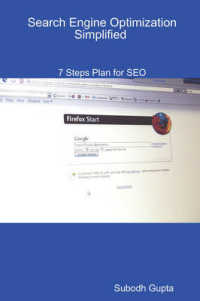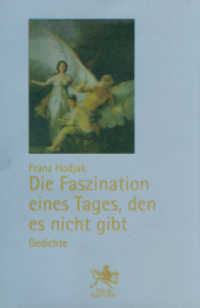- ホーム
- > 洋書
- > 英文書
- > Philosophy
Full Description
Compares Chinese and Western perspectives on the family.
This book is a timely contribution to the growing field of the philosophy of the family. Drawing on a lifetime of research in Western and Chinese philosophy, Zhang Xianglong adopts a comparative perspective to navigate between Greek philosophy, phenomenology, and Confucianism to explore such topics as the nature of the family, filiality, human nature, temporality, memory, incest taboos, the future of Confucianism, and popular literature. He weaves his vast intercultural knowledge and understanding into penetrating philosophical, social, literary, and anthropological insights that reveal the strengths and weaknesses of Western and Chinese conceptions of the family. This book is a paradigm of comparative philosophy and demonstrates the value of the Chinese intellectual tradition for modern philosophy.
Contents
Preface
1. Between Confucianism's "Treating Family Affectionately" and Kierkegaard's "Abraham's Sacrifice of Isaac"
2. Is Human Nature Related to the Family and the Way of Filial Reverence? Critiquing the New Culture Movement on the Family
3. Anthropology and the Temporality of the Way of Filial Reverence
4. Imagination and Historical Memory: The Stratification of Internal Time Consciousness
5. Incest Taboos and the Way of Filial Reverence
6. Incest and Plato's Republic
7. Who Should Care for the Elderly?
8. Parents, Children, and the Confucian Classics
9. Toward a Confucian Special Zone by Way of an Intercultural Dialogue with the Amish
10. Can Confucianism Accept a Matriarchal Family? Learning from the Matriarchal Mosuo of Southwestern China
11. Family Relations and the Way of Filial Reverence in Harry Potter
Notes
Works Cited
Index








